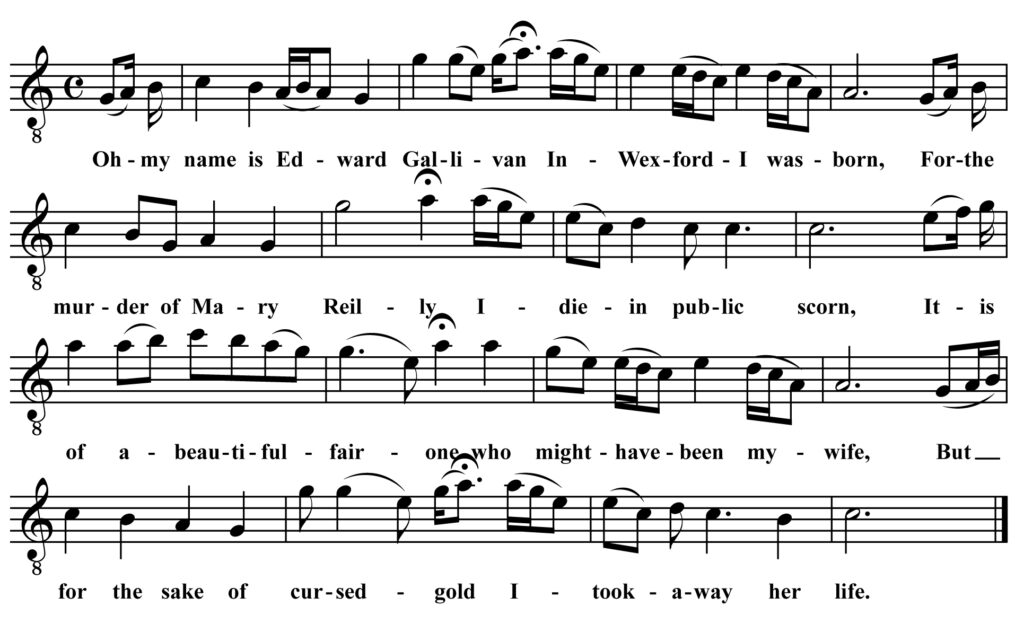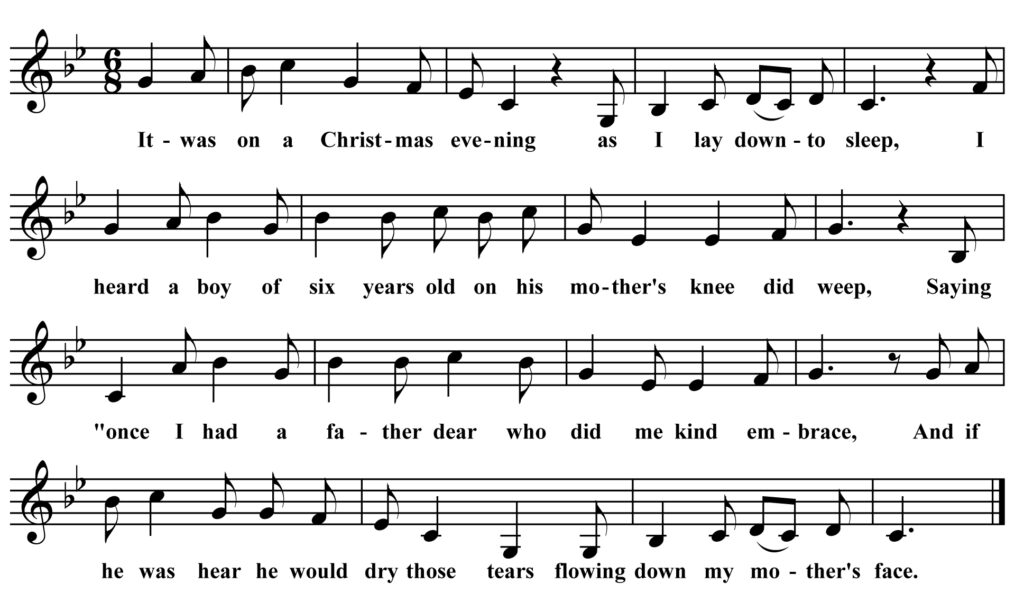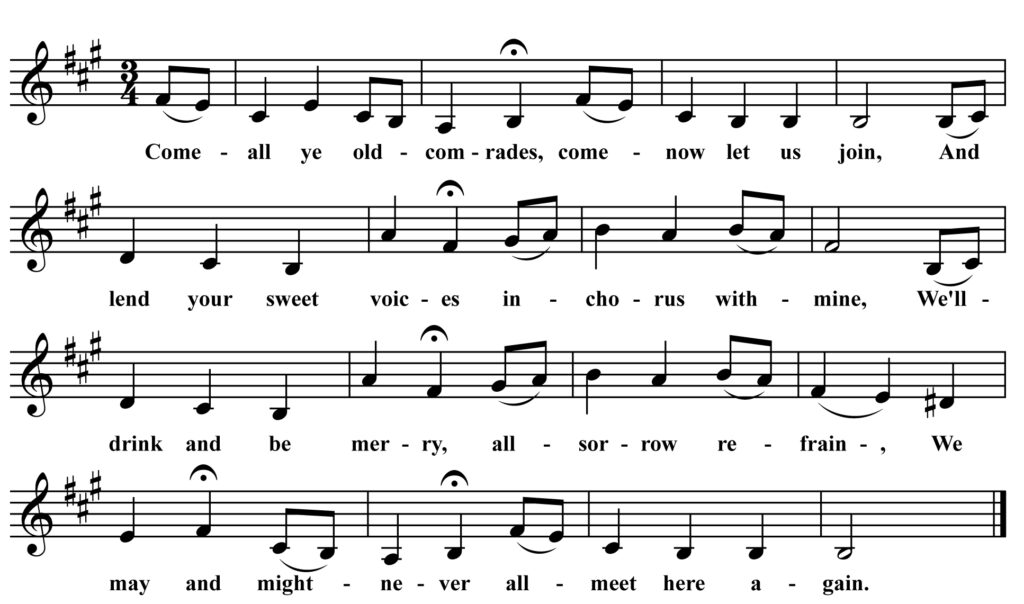The Wexford Girl

Oh my name is Edward Gallivan, in Wexford I was born,
For the murder of Mary Reilly I die in public scorn,
It is of a beautiful fair one who might have been my wife,
But for the sake of curs-ed gold I took away her life.
When first I kept her company her friends did on me frown,
And by her hard indust-o-ry she saved twenty pounds,
She believed my false vows but I led her quite astray,
Saying, “My dear we will sail without delay unto Americay.”
Oh those words that she had said to me would grieve your heart full sore,
Before that I had murdered her and left her in her gore,
She said, “Dear James here are my keys and in my box you will find
An order on the savings bank for the sum of twenty pounds.”
“Your money it will take me unto some foreign shore,”
I then gave her a deadly blow, I need not say no more,
With a loaded whip I murdered her, her body I concealed,
Her blood it cried for vengeance, the murder soon revealed.
Oh I was apprehended, as you may plainly see,
May the Lord look to my sinful soul, give me some time to pray,
The judge he made me answer, “You gave no time to pray,
To that innocent young creature whose life you took away.”
Oh, now my song is ended, I mean to drop my pen,
I hope my fate a warning will be to every young man,
I hope my fate a warning to young and old may be,
To shun drinking and night walking and keep good company.
We have another song from the masterful voice of New Brunswick singer Angelo Dornan this month. There is a fairly well-travelled ballad also called “The Wexford Girl” that song scholar Robert Waltz and others have recognized to be a separate story than this grim murder ballad. In Dornan’s song, the man lament’s his horrific crime that resulted from his greed for money.
The above is my own transcription of Dornan’s singing which is now available to hear via the Nova Scotia Archives site. After singing the text above, Dornan added this half verse implicating Satan himself:
I had not gone one mile with her until Satan tempted me
For to rob her of her money and then her butcher be.
As usual with Dornan, it’s his beautiful singing and the enticing little twists and turns of his fluid version that draw me to this otherwise very dreary song!


